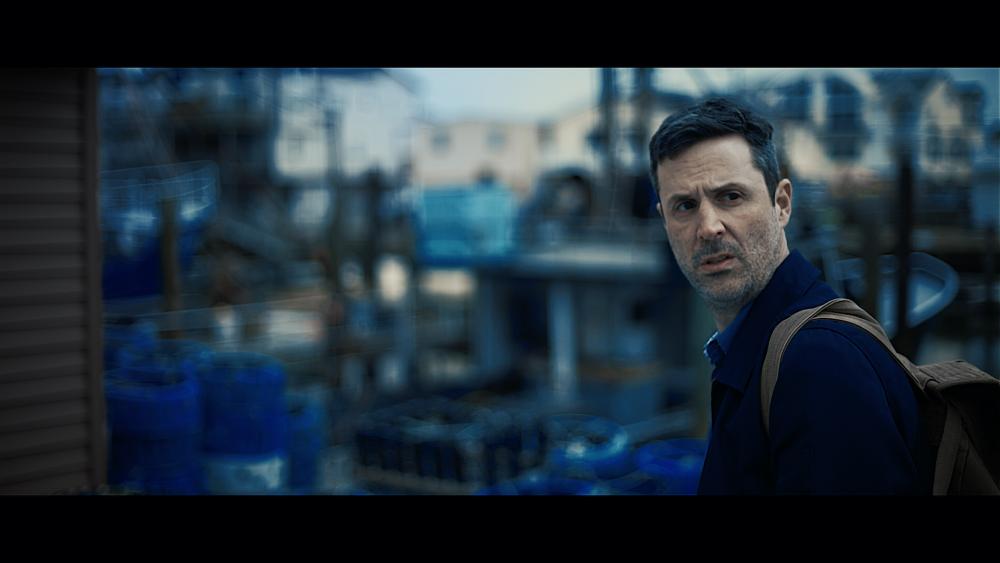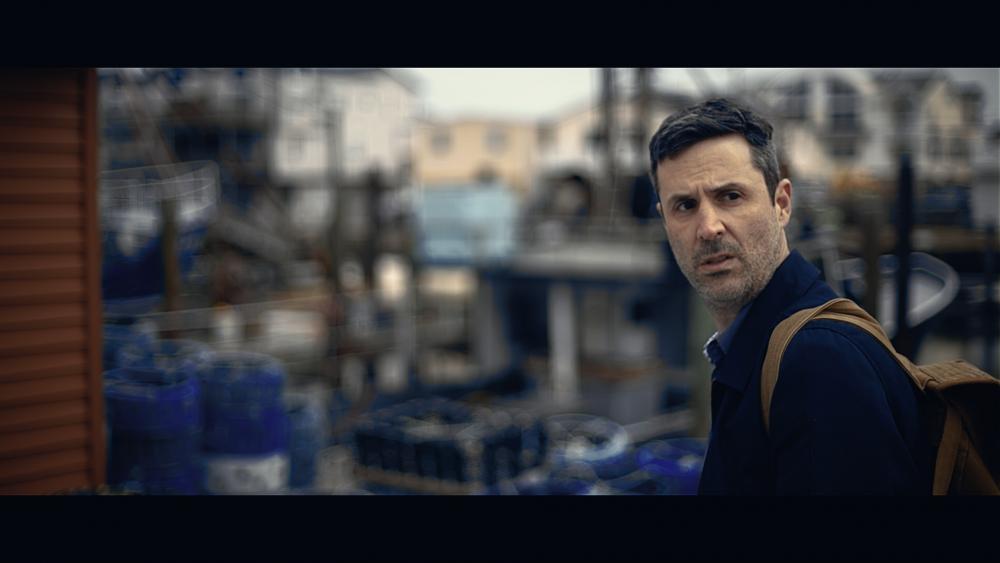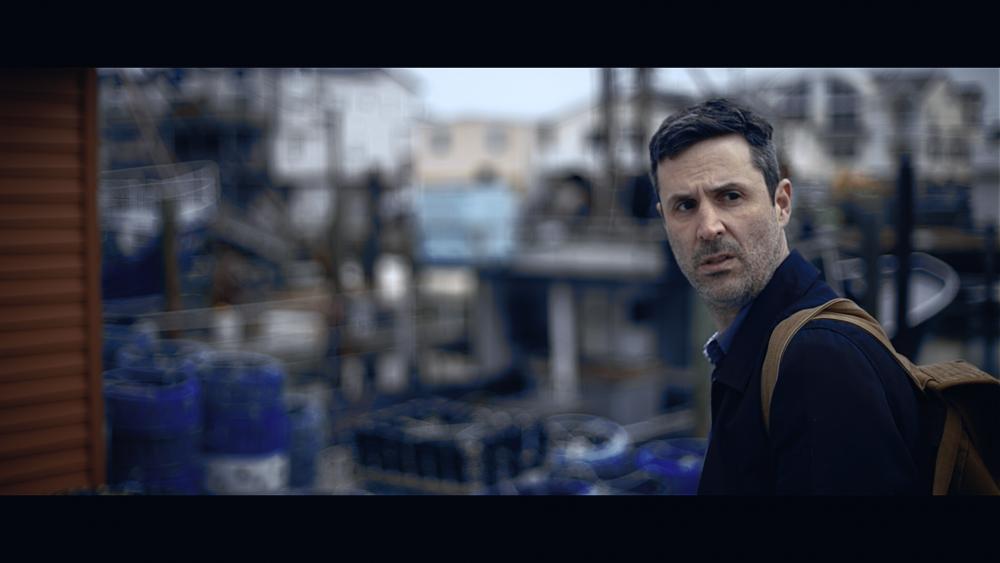-
Posts
494 -
Joined
-
Last visited
Content Type
Profiles
Forums
Articles
Everything posted by Matthew Hartman
-

What is the most important spec (to you) ?
Matthew Hartman replied to Mattias Burling's topic in Cameras
We need some of that humor here lately. ? -
"Mobile phone film-making must be going mainstream when Matt Damon has a cameo in a feature film shot on an iPhone. It might be a movie made by his greatest collaborator, director Steven Soderbergh, but still – the entire camera department for Soderbergh’s latest film, Unsane, fitted into a backpack." http://www.bbc.com/culture/story/20180223-claire-foy-and-matt-damon-in-a-film-shot-on-a-smartphone This is only forward moving from here. Two huge Hollywood names attached to this propels smartphone filmmaking 10-fold.
-

What is the most important spec (to you) ?
Matthew Hartman replied to Mattias Burling's topic in Cameras
Has to be dynamic range for me. I could deal with 1080 resolution for the time being but blown out highlights and clipped shadows drive me bonkers to no healthy end. And it makes sense. Our eyes are going right to the lightest and darkest parts of the scene, and what do many videos have in the background? Blown out skies and practicals. ARGRHGHAGHEUHGH. ????????? Badge? You mean brand? -

Anyone shooting vertical video? (deliberately ;) )
Matthew Hartman replied to kye's topic in Cameras
I think absent in this topic is what I elluded to previously. Vertical composition sends the viewer a subliminal message, which is a long used convention in the art photography and science of composition for many ages. It can be challenged of course, but it can't be ignored or absent from this conversation. It's more than just orientation for Facebook, Instagram, etc. It makes sense in terms of green screening because you are most likely compositing the key on a horizontal frame and you need that vertical headroom. This is only logical. When you have a vertical frame, leading line and weighting become very different as opposed to an horizontal frame. If you don't understand the narrative of what your frame denotes you should probably not consider shooting vertically because you may be unwittingly sending the viewer the wrong subliminal narrative that's opposite of what you intend. Know the rules and conventions you're breaking, because you will be asked to justify them at some point in your career. If you have no answer to this question you will look foolish and arbitrary in the eyes of the industry and lose credibility. Your clients don't know this. It's your job to inform them, you're the expert. Composition absolutely matters, and you'd be hard pressed to find a working professional that would disagree. -
The reason many of you are seeing differences in the image in your application as opposed to the outputting file is most likely because you're exporting in a different color gamma than you're using in the app. You can embed various color gamma in the jpeg marker which ensures consistent viewing.
-
I still remember the smell of all the chemicals used in the process. It's funny how that stays with you after so many years. Last time I processed negatives and went into the darkroom was about 1996. My least favorite part of the process was loading the film into the canister for the chemical process to expose the negatives in complete darkness. Everything was done by touch. Man, thinking back, what a long multi-step process to get from A to B. It was all experiemental. I can't decide if I miss it or not. At least I know I don't miss the cost or brain cell damage, nor the unforgiving nature of making a mistake. ?
-
I woke this morning with the realization that we fanboy over these cameras because they (as in all) are exactly underwhelming and unremarkable. We are such pain and frustration (sounds overly dramatic, but follow along) that we cling to the insidiously incremental differences between brands as a claim to somekind of superiority. In short, we as the consumer are being played. Our phycology is being manipulated because we allow that psychology to exist with in us. We all desire the "perfect camera", and we are frustrated, annoyed, pissed off and hurt that it doesn't exist and likely never will. I've taken part in these "my camera is better than yours debates" (because that's the root of what's happening here) and in other places. My psychosis ends here today. I no longer "care" what camera you choose to use nor which one you choose to reject. You do you boo. It's all good.
-
Good on you. On professional sets everything is curated and that's why successful images pop the way they do. If you learn any color theory learn basic complimentary and split complimentary, and that get you to gold 99% of the time. Here's an Adobe smartphone app that can help big time in this regard: https://itunes.apple.com/mt/app/adobe-color-cc-capture-color/id632313714?mt=8 https://play.google.com/store/apps/details?id=com.adobe.creativeapps.gather
-

8bit → 10bit video with temporal noise filtering, stunning results
Matthew Hartman replied to cantsin's topic in Cameras
Ummm I think we should get Andrew's permission first? -
For sure my man. We all want something different out of this filmmaking business. But even at your "level", I still would recommend finding a good book or online tutorial on color theory or harmony. It will propel your captures 10-fold at whatever purpose you're after.
-
In a world where image quality is an endless pursuit to match the human eye, I would say it's another stepping stone on that path.
-
Even when manufacturers purchase the sensor from Sony, do they not strap on their own proprietary technologies? Sony may have the best image sensor on the market but that doesn't mean they know how to best leverage it as a complete system. (I'm not disparaging Sony cameras here) For example, Samsung sold AMOLED screens to Apple for the iPhoneX, but Apple adds their own spin on it. Samsung now wants to sell their ISOCELL sensor to everyone and their grandmother whilst using a Sony made sensor in the S9/9+.
-

Anyone shooting vertical video? (deliberately ;) )
Matthew Hartman replied to kye's topic in Cameras
In photography, shooting vertical is part of a narrative. I would be careful shooting vertical merely to fit a social media platform. -
Human nature wouldn't you say? I think some of you need to remember change does not come easy for everyone. In fact, we are part of an industry that is considerably hostile to and is currently going through a lot of growing pains, especially at the upper echelons of the business chain. It's uphill all the way, but berating people into change is never a good idea. It just gives them more reason to remain hostile and indoctrinated. At the end of the day, no one interested in image performance is going to reject more dynamic range. But everyone comes into that differently.
-
I MUST REFRAIN FROM THIS...I MUST REFRAIN FROM THIS...I MUST REFRAIN FROM THIS...
-

All music at soundimage.org is now free for commercial use
Matthew Hartman replied to Eric Matyas's topic in Cameras
Dude, I'm really surprised more here in this community aren't showing you some love for this. I've linked your website to some local filmmaking groups in my physical community. I can't thank you enough. I know how much time and effort goes into this type of stuff. -

8bit → 10bit video with temporal noise filtering, stunning results
Matthew Hartman replied to cantsin's topic in Cameras
Fair enough. I hope you don't think I was being adversarial, I was genuinely curious. -
@mercer This is an excellent exercise for this community. It gets us talking less about gear and getting more involved in the process of actual film making. There's a lot that we can teach one another here. One thing that I like to do in pre-production is pay very close attention to color harmony within the scene. I think a lot of inexperienced or less experienced cinematographers forget that this is definitely part of the cinematic equation. It's good practice to come up with a harmonized color pallet/theme when thinking about your actors and the locations/set design and the narrative. This is usually thought of as the set designer's and wardrobe's responsibility, but there is cross over into the cinematographer's responsibility too. At the end of the day, the DP owns the image, and the director and producer is coming squarely for you when that image fails. The benefit of color harmony besides obvious resolve, attraction and readability, is there's going to be less grading and qualifying in post down the line. When one can, color is best to handle in pre-production. "Qualifying" means targeting portions of your image to grade independently. This can be done in several ways. In Lemetri, this is called "Secondary Color". Just some friendly suggestions. Personally, I'm favoring the more subtle grades. I think pushing too much contrast into this scene is equivalent of the narrative "trying too hard". You'll never catch a colorist using pre-baked LUTS. Maybe as a starting point. The point being, OWN THE IMAGE. It is yours after all.
-

8bit → 10bit video with temporal noise filtering, stunning results
Matthew Hartman replied to cantsin's topic in Cameras
Exactly. Anytime you are adding new sub sampling to a bitmap image, you are theoretically adding bit depth to it, which is just a way of saying adding new pixels that were not present in the original file. I'm still trying to figure what the end game of this is for you personally, besides obvious data gain/image quality. It sounds like you want your 8bit file to register as a 10bit file so that HDR is automatically triggered on YouTube playback? If that's the case you could just output your 8bit footage to a 10bit codec. -
-
With online distribution it becomes very challenging, next to impossible to stop piracy. And if you can even track it down you then have to have the money for arbitration costs. When you sign on to a network it becomes their IP and they have their boardroom full of lawyers to assist in protecting their IP. On the bright side, you get your check and/or royalty, not to mention any new projects that spawn from that exposure. It seems as if losing strict control over your IP is almost the new norm. I mean even the big media networks can't stop it. That being said, piracy is still very much illegal in most countries so technically speaking the laws still protect you. https://www.bradley.com/insights/publications/2012/03/international-copyright-protection-how-does-it-w__
-
I actually pull down a very stable 180Mbit and 200Mbit (HEVC) if I turn off other in-cam features.
-
If you have the cash these monitors are calibrated and really, really nice. I have the 2K version. https://www.benq.com/en-us/monitor/video-post-production/pv3200pt/specifications.html https://www.benq.com/en-us/monitor/photographer.html
-
I don't but I can update you, or the cinematographer can update us here as he's a member of this site as well.







